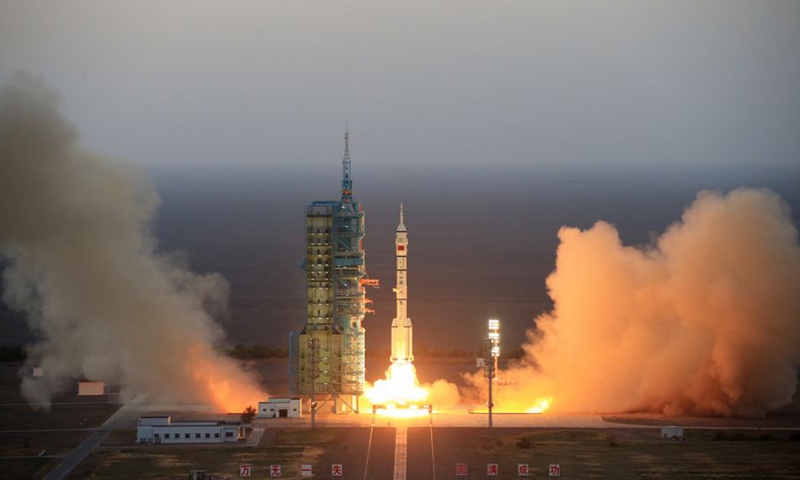China launches reusable experimental spacecraft for peaceful uses
By Wang Qi and Zhang Hui Source: Global Times Published: 2020/9/4 21:28:40

The Long March-2F carrier rocket carrying China's Shenzhou-11 manned spacecraft blasts off from the launch pad at the Jiuquan Satellite Launch Center in Jiuquan, northwest China's Gansu Province, Oct. 17, 2016.File photo:Xinhua
China successfully launched a reusable experimental spacecraft with a Long March-2F carrier rocket from the Jiuquan Satellite Launch Center in Northwest China on Friday.
Space experts believe that the vehicle could meet future demand for "fast, reliable and cheap" space transportation. It can also meet the needs of launching payloads.
The spacecraft was designed for peaceful uses of space, and will return to Earth after some time in orbit, Xinhua News Agency reported.
In October 2017, the China Academy of Launch Vehicle Technology said they were working with other domestic institutes to develop reusable launch vehicles, with a planned launch in 2020. The ultimate goal was not only to reduce the transport cost per payload to one-tenth of existing expendable launch vehicles, but to significantly reduce launch preparation time, with the promise of airline-like round-trip transport.
Jiao Weixin, a space science professor at Peking University, told the Global Times on Friday that the reusable spacecraft have a wide-range of applications, such as commercial space activities in transferring space goods or personnel spaceflight, and close-range Earth observation for scientific research or other purposes.
Reusable spacecraft are also being eyed for human space tourism, as it could significantly reduce the cost of the journey, Jiao said, noting that the vehicles could fly at a low altitude, which is capable of conducting precise observations of natural phenomena, as well as ground targets, Jiao explained.
In May, the US space forces launched the Boeing-made X-37B vehicle -- a reusable and unmanned spacecraft. The spacecraft was also reported carrying the small satellite FalconSat-8 developed by the Air Force Academy.
US media said that although the US possesses at least two X-37Bs, they were always mum on those vehicles' tasks and capability besides scientific research.
The X-37B could conduct military reconnaissance to flying targets, take photos of the appearance of the targets to identify their purpose, Jiao said.
China is expected to complete research and development of reusable launch vehicles and related flight tests by 2030, at which time China is expected to become the first country in the world with fully developed reusable spacecraft, Science and Technology Daily reported in 2017.
Posted in: SOCIETY